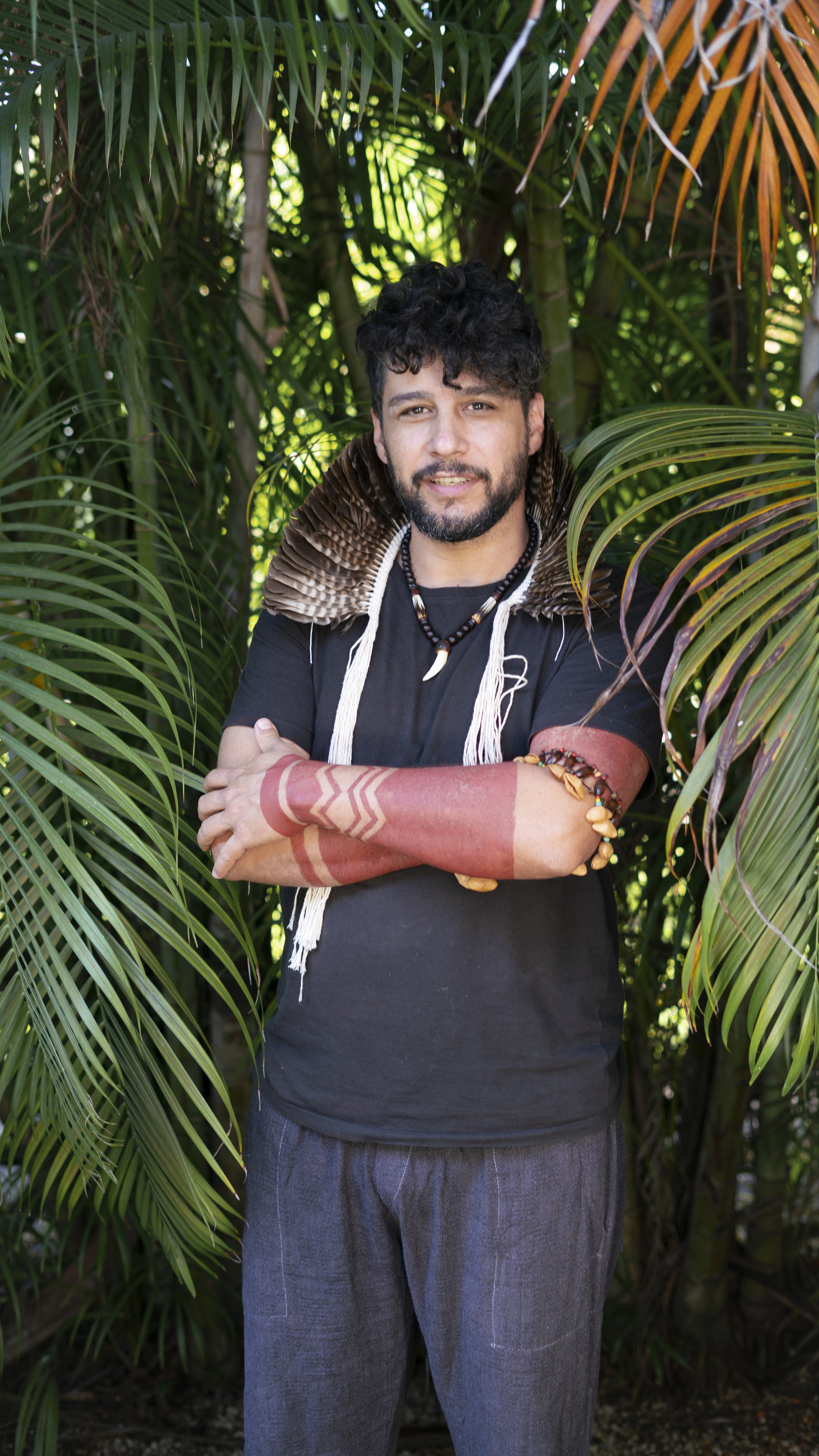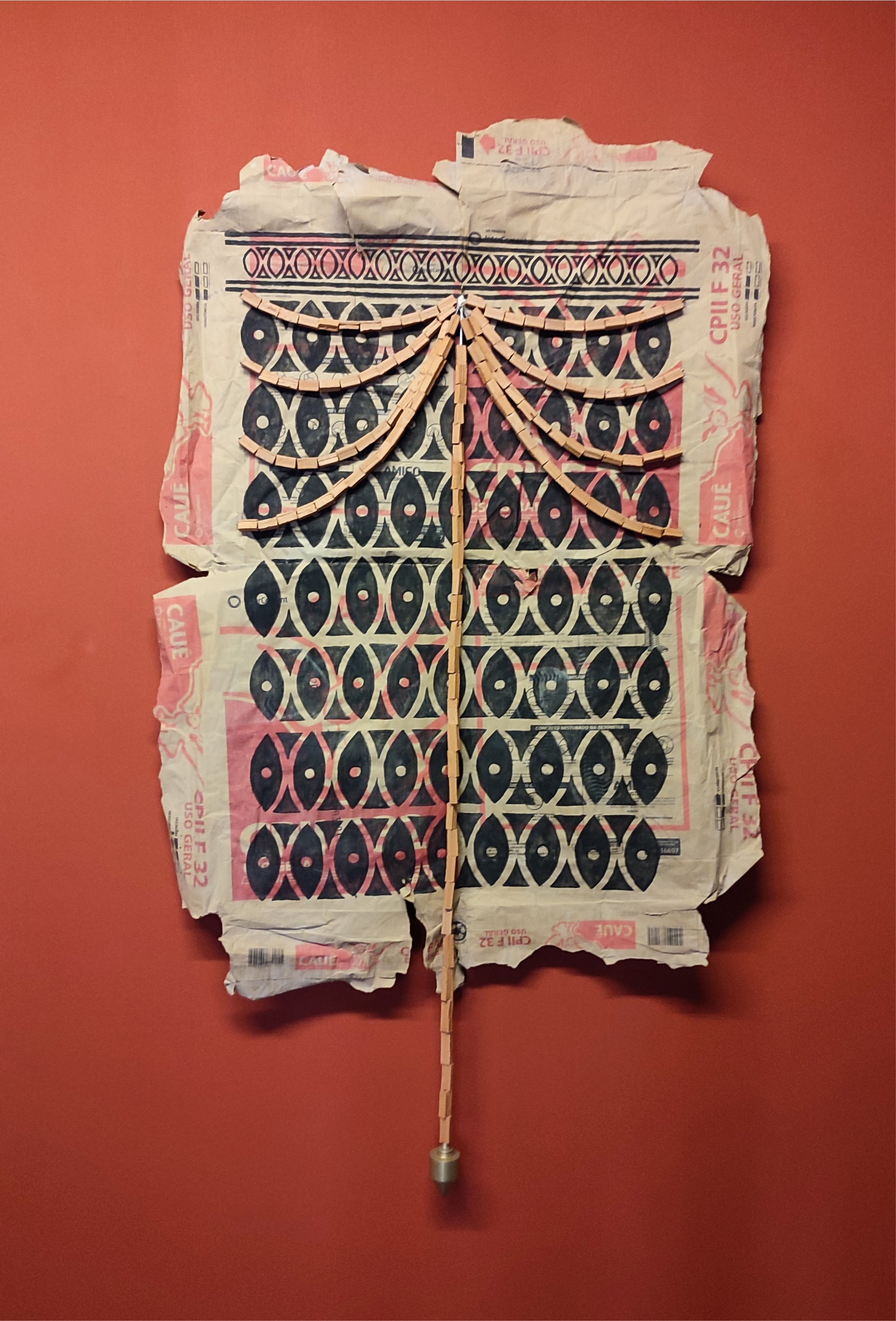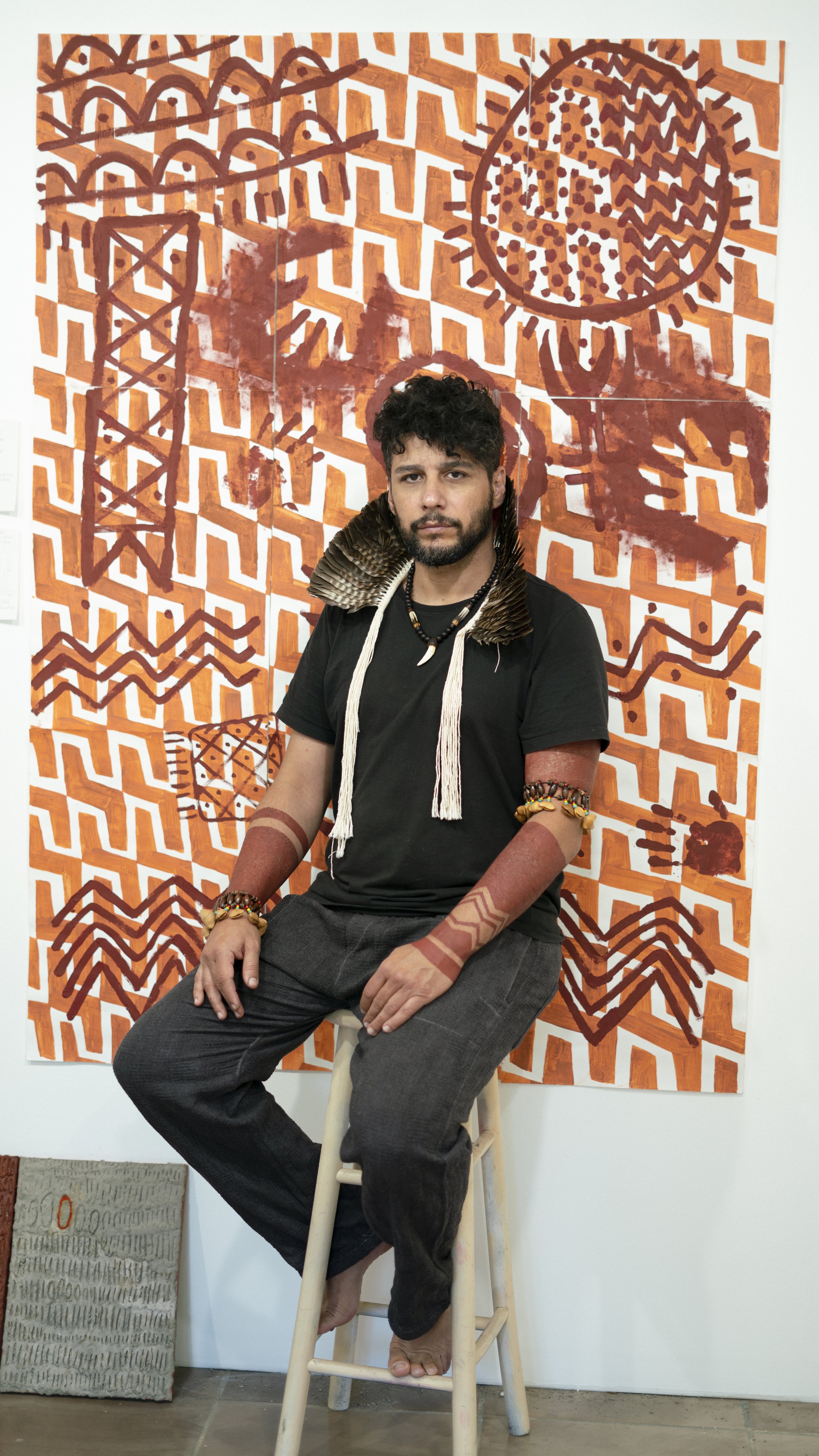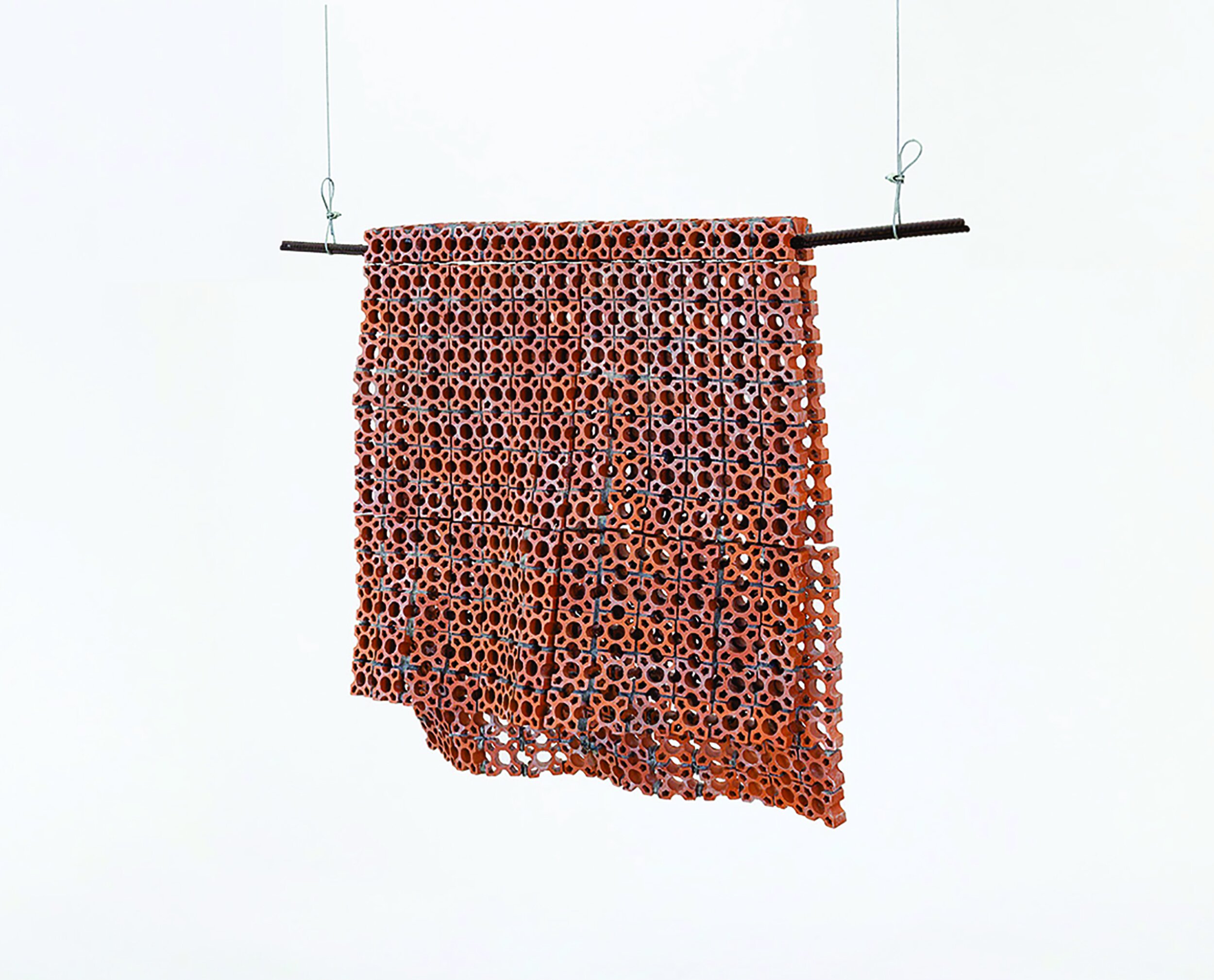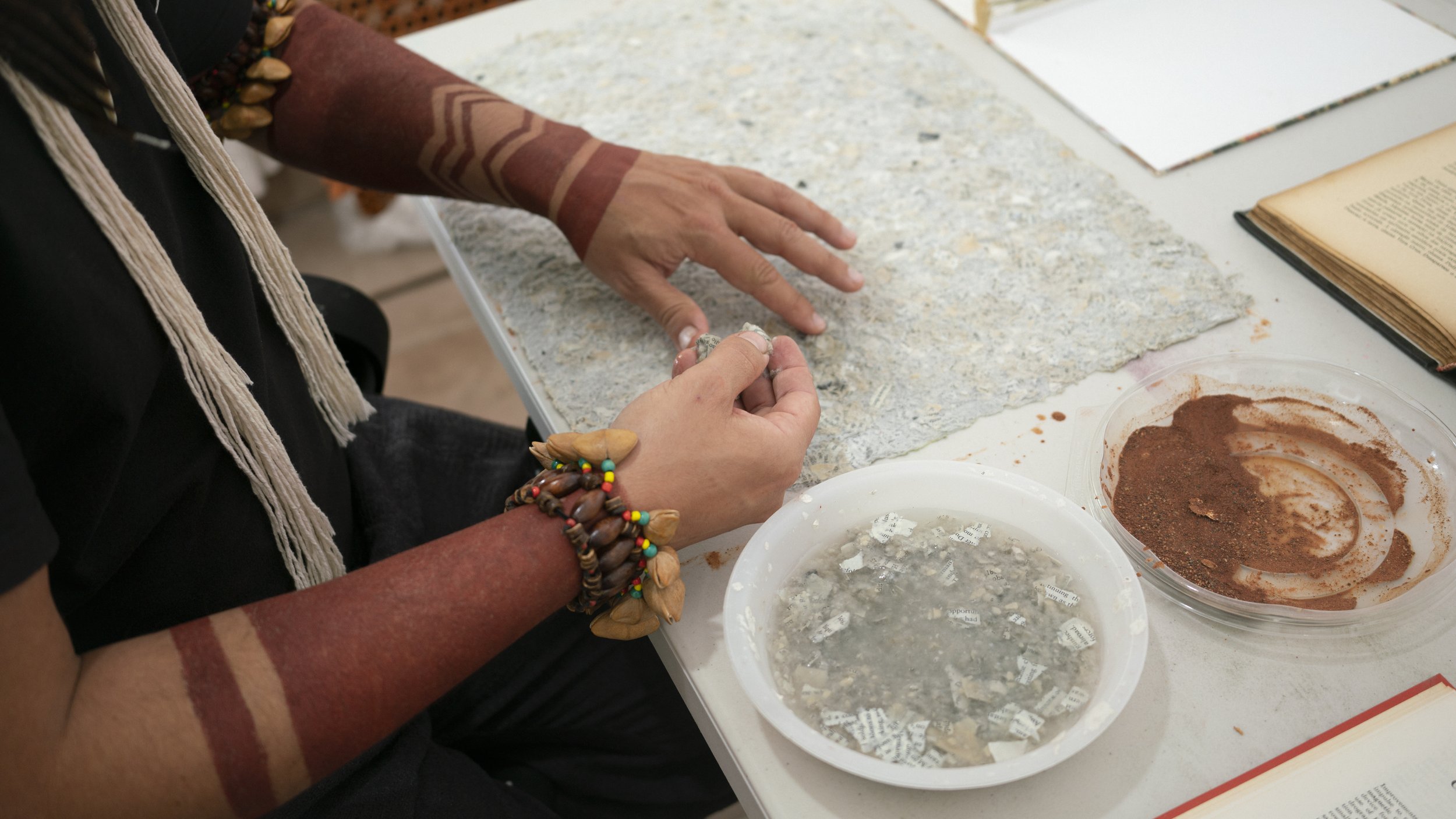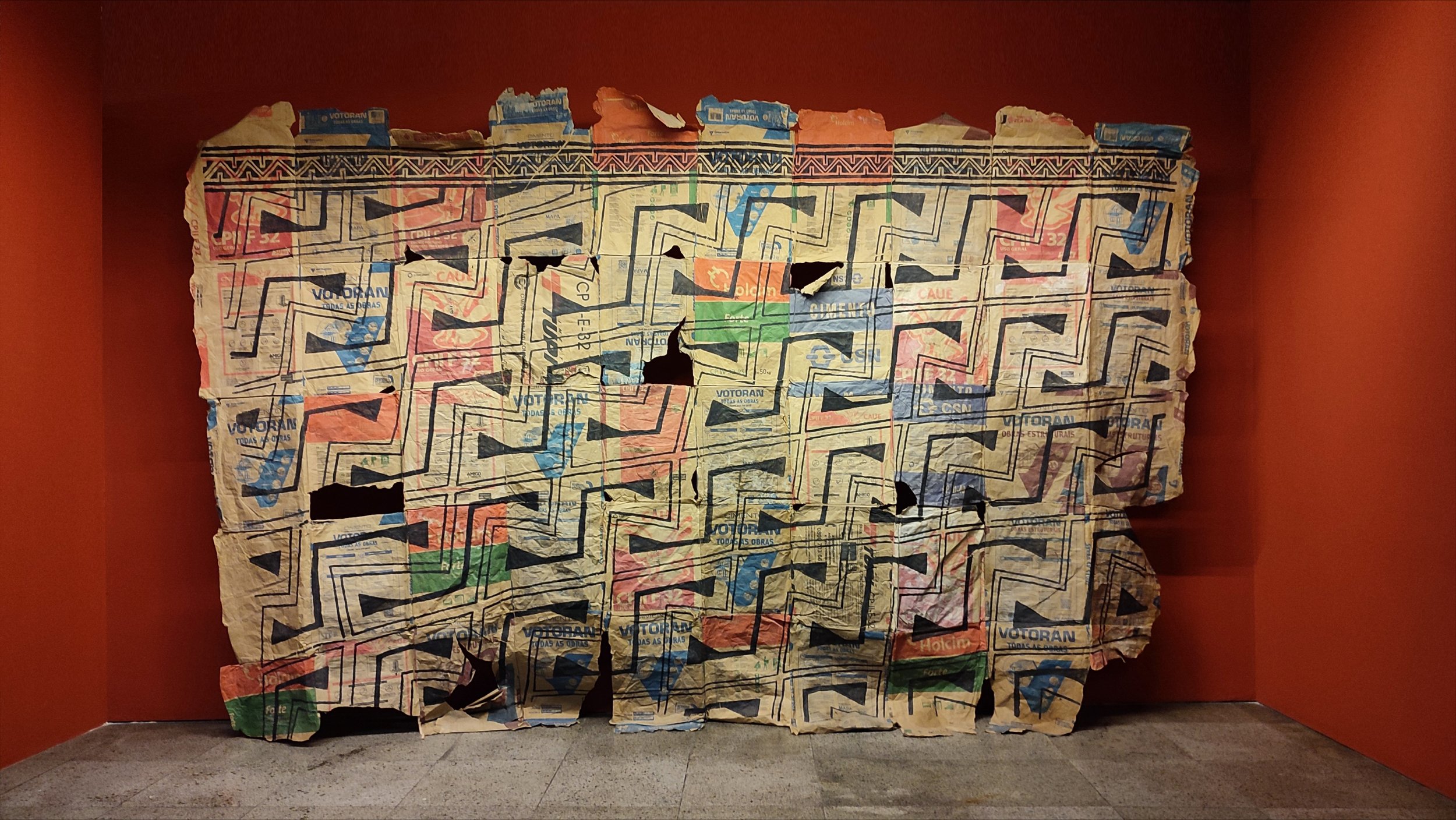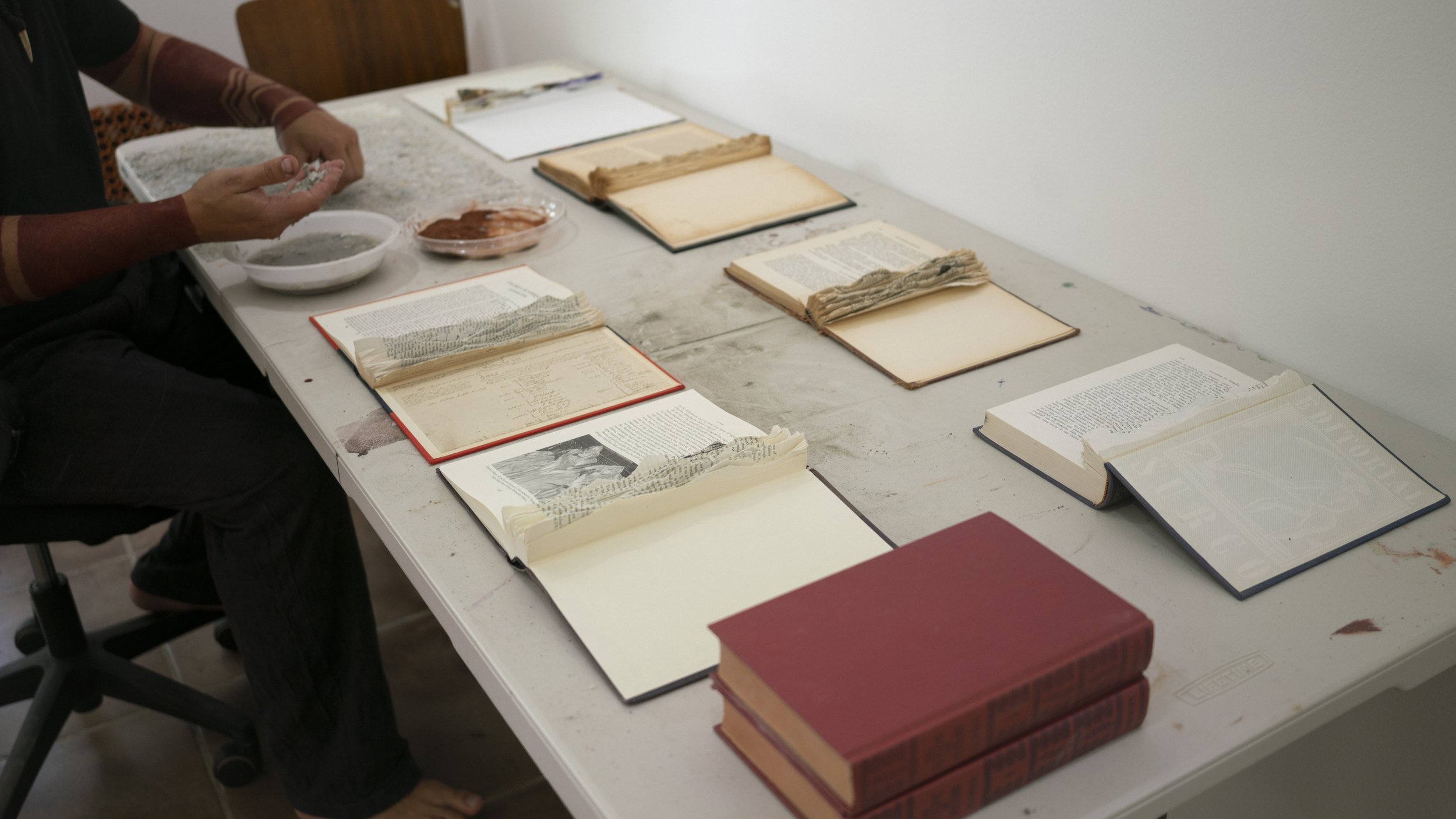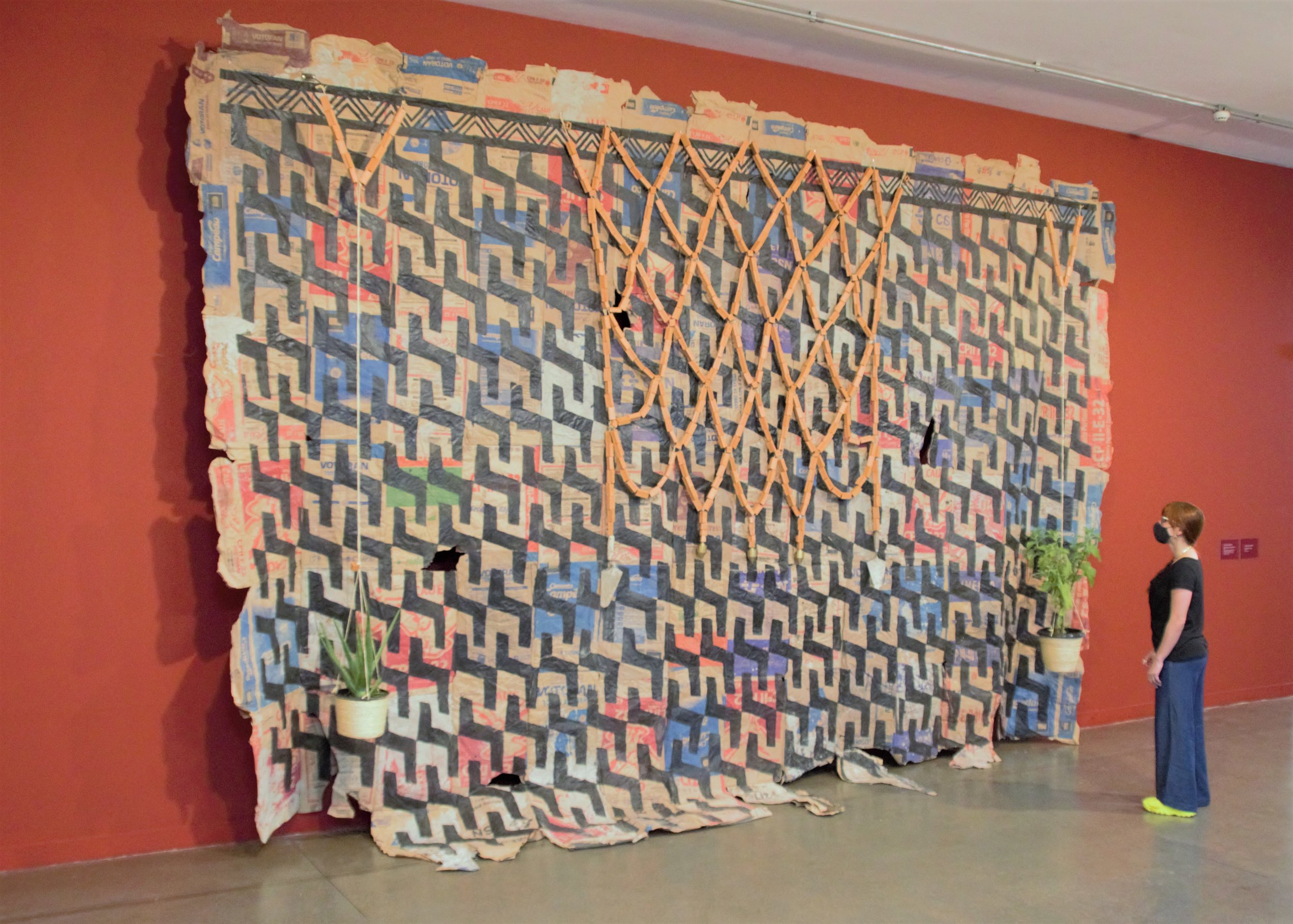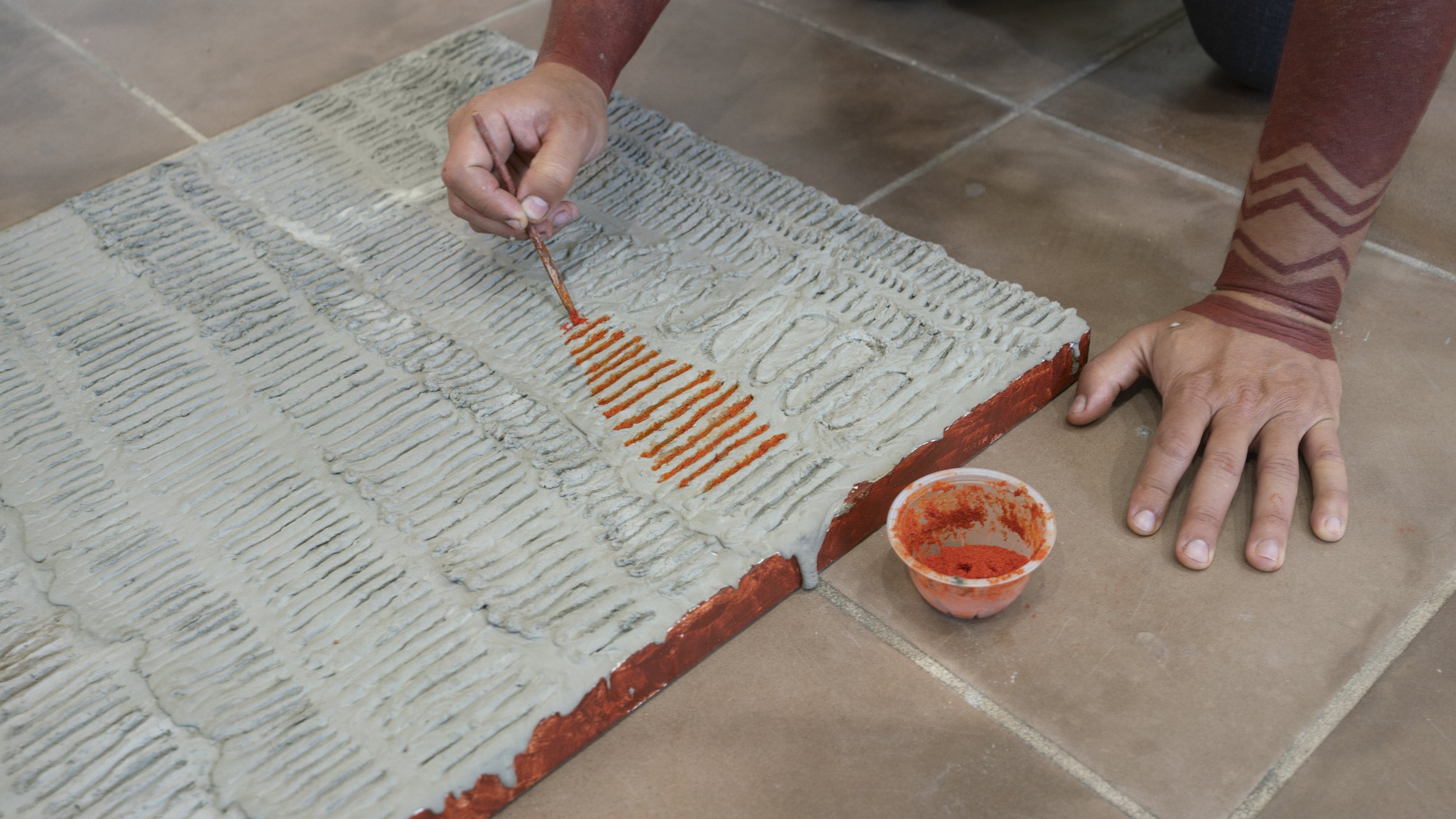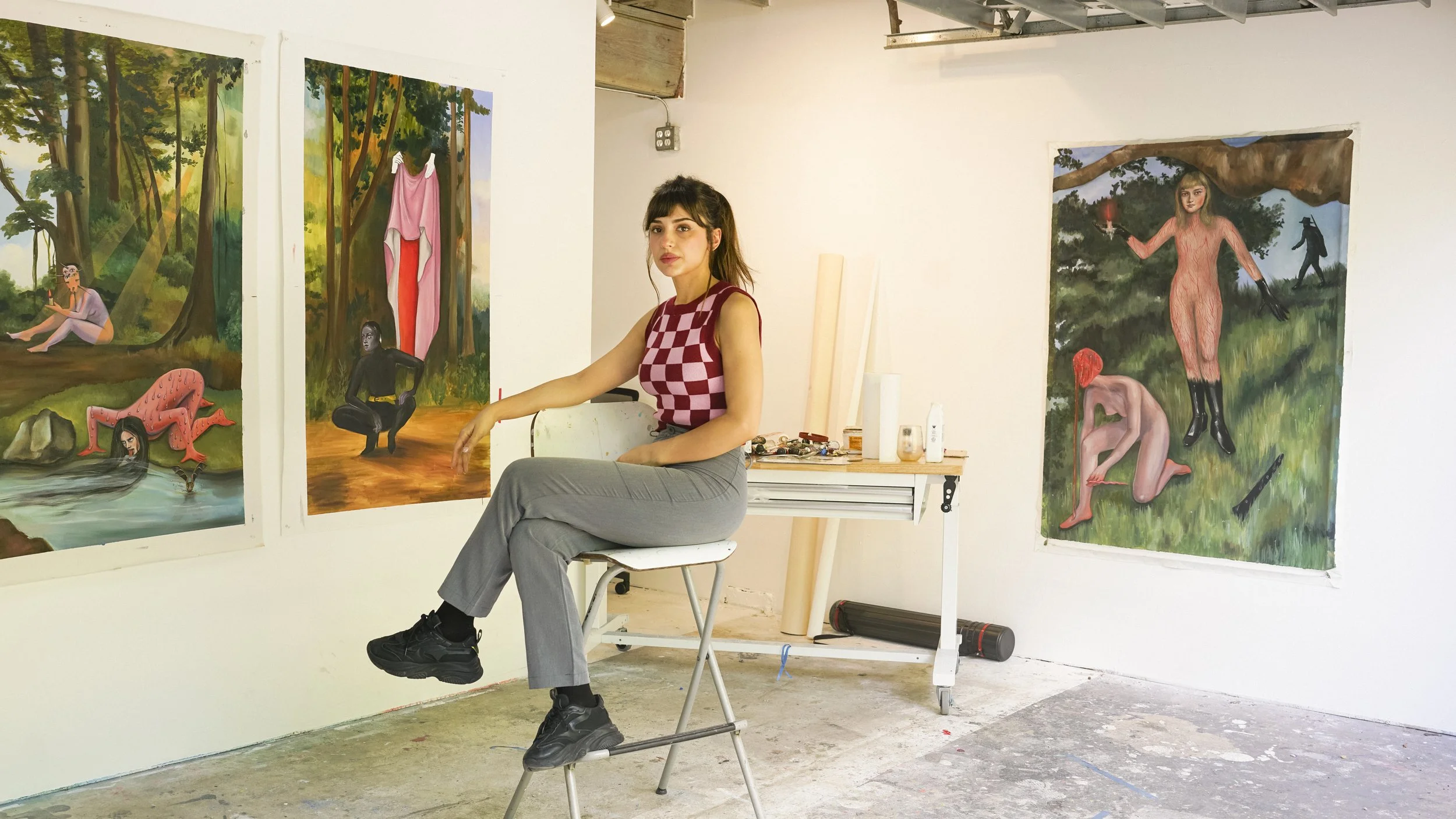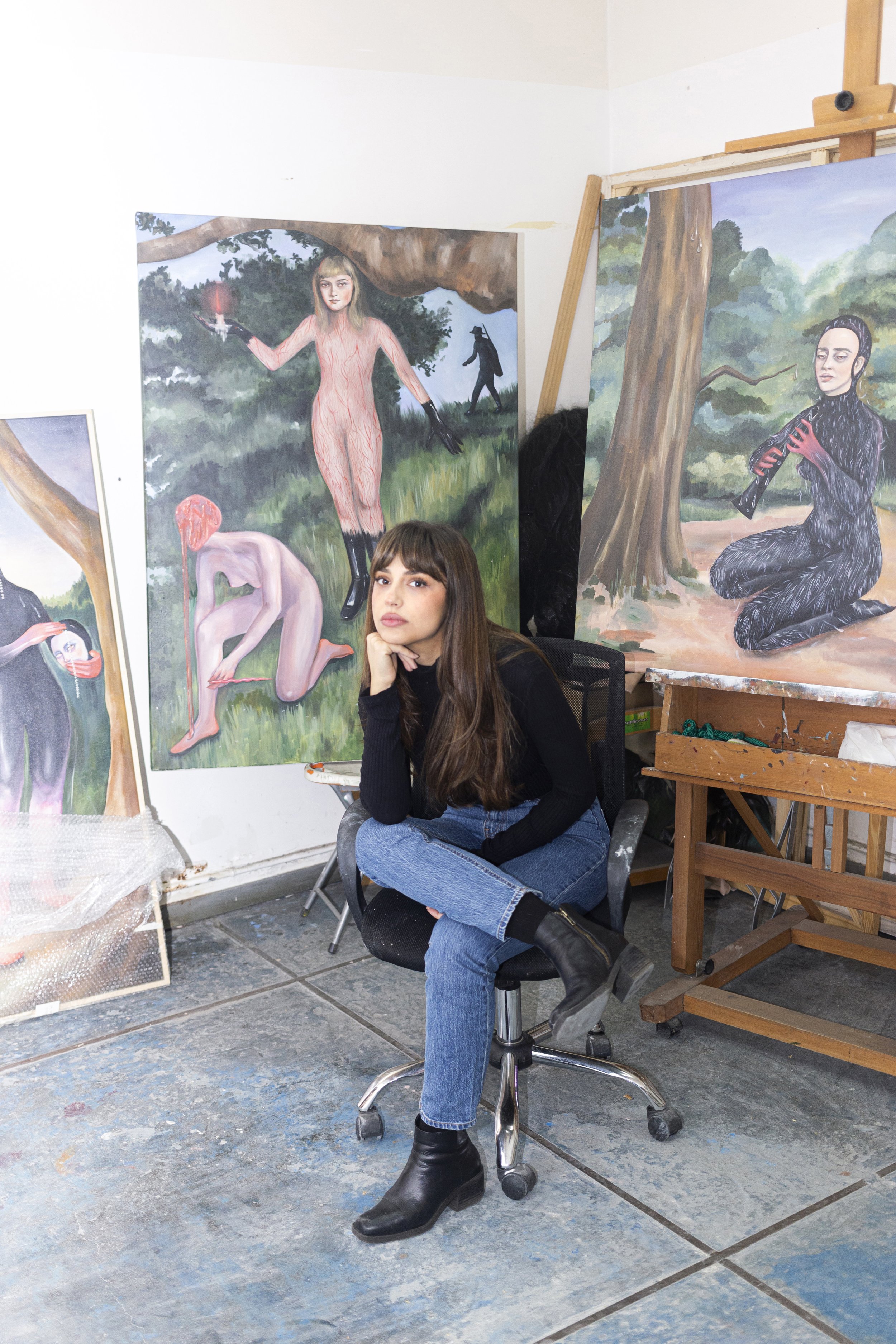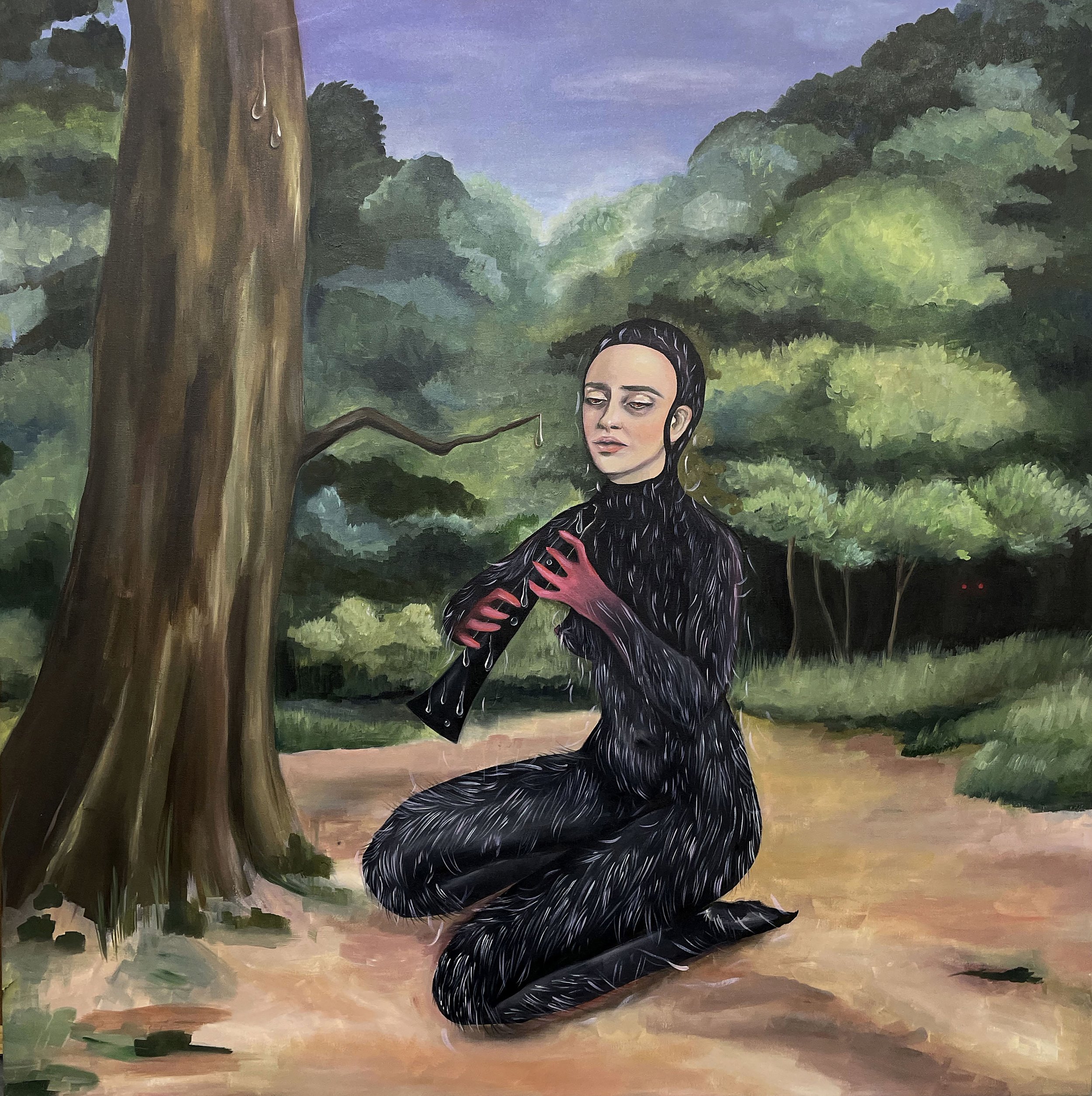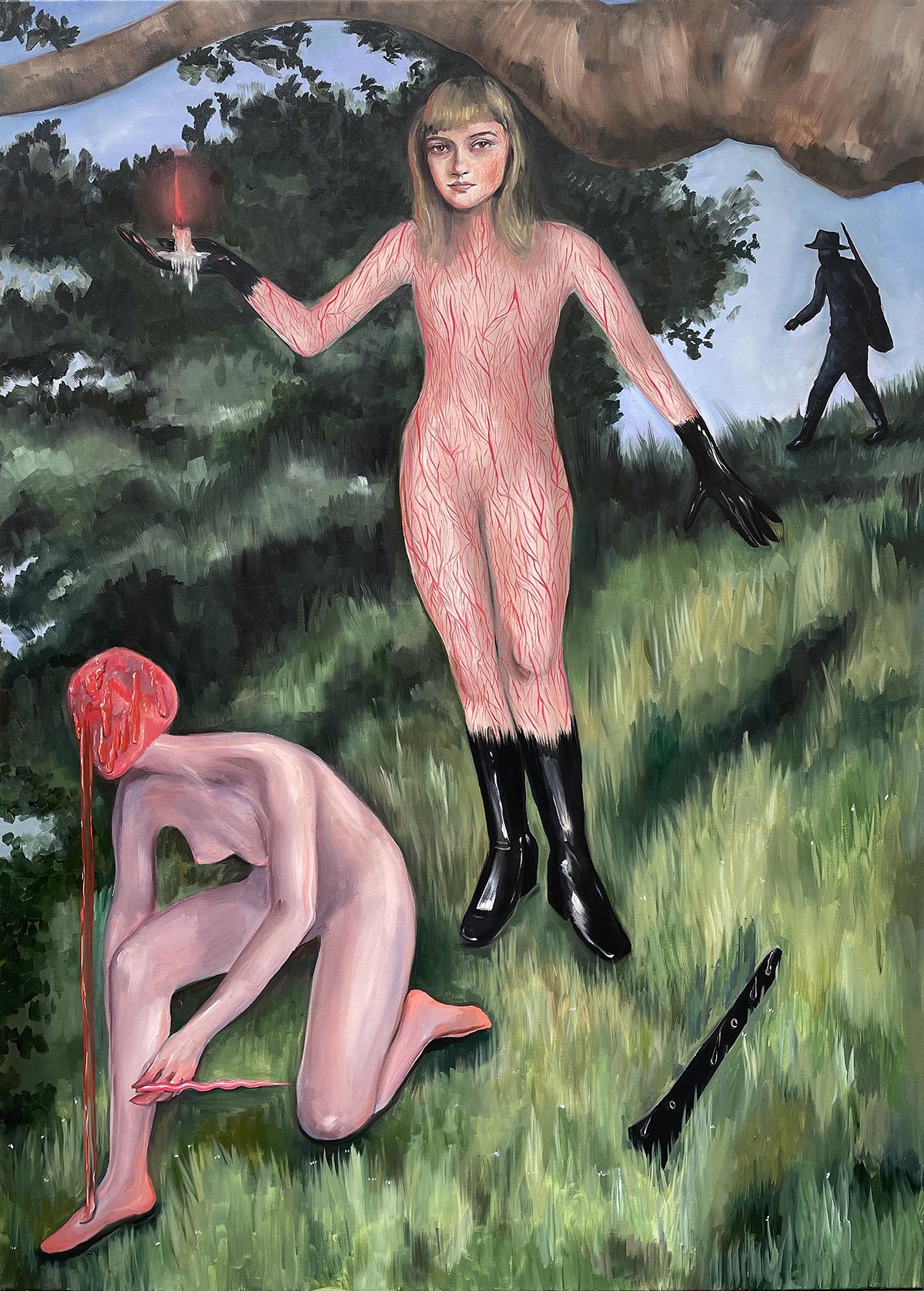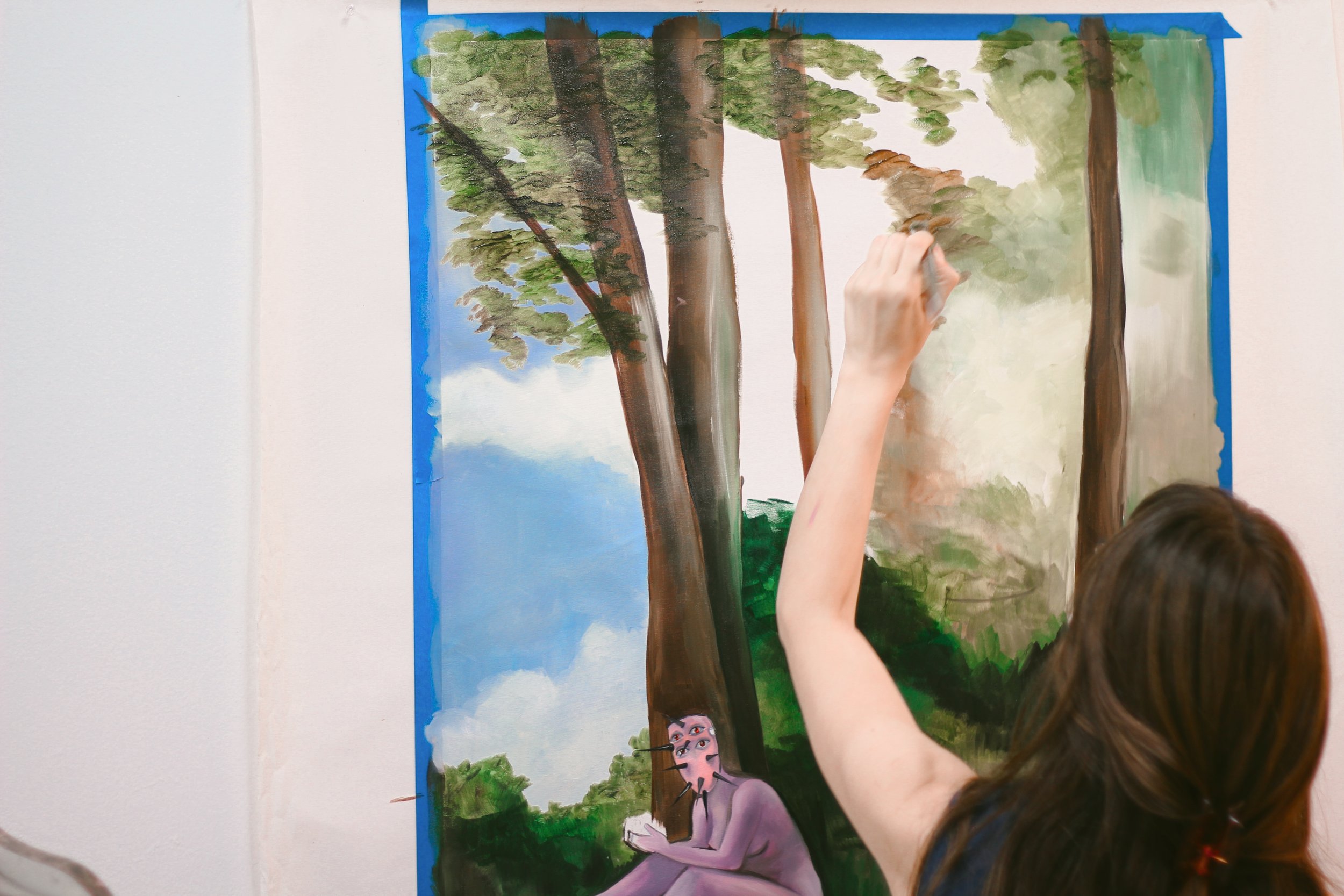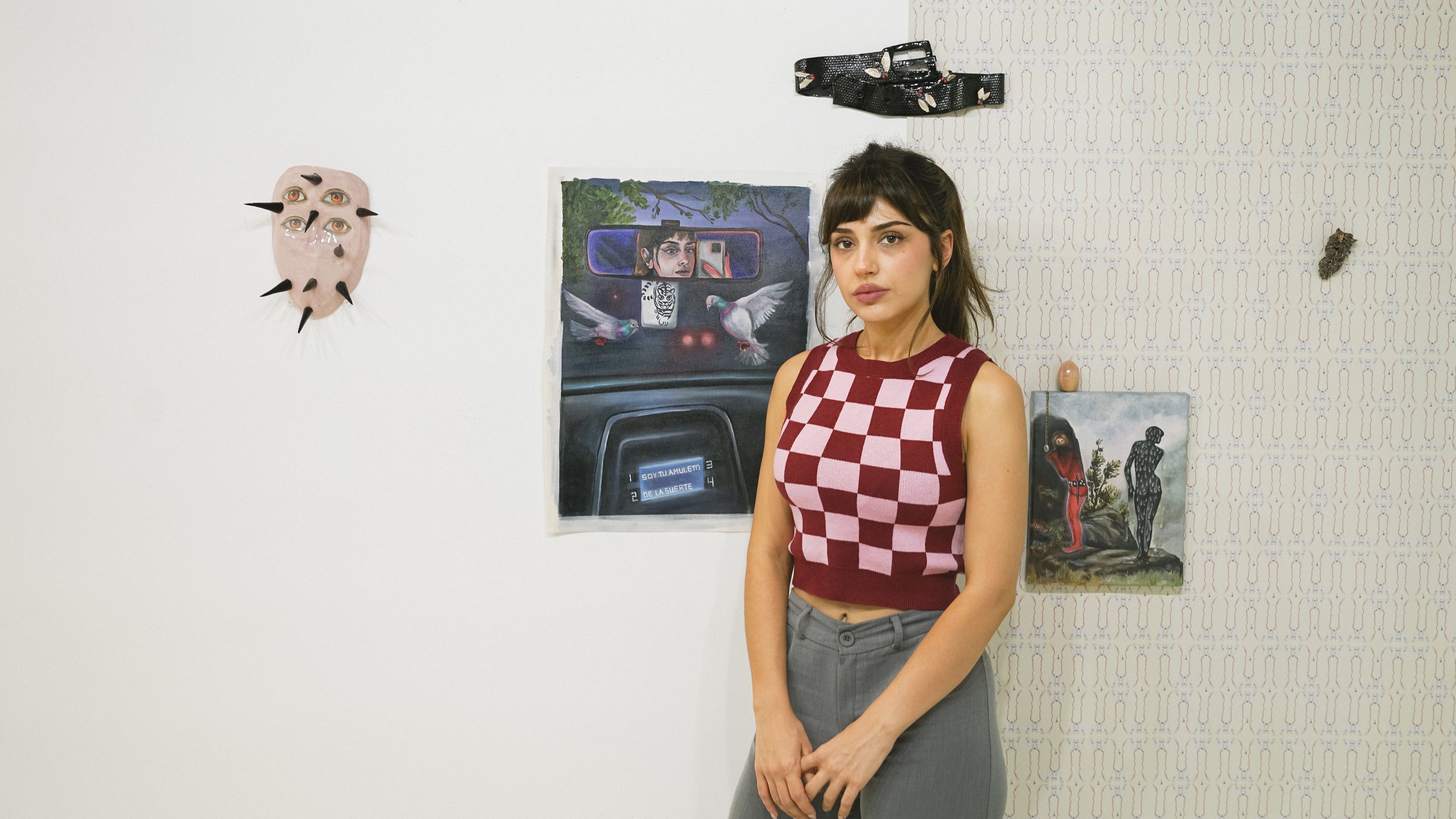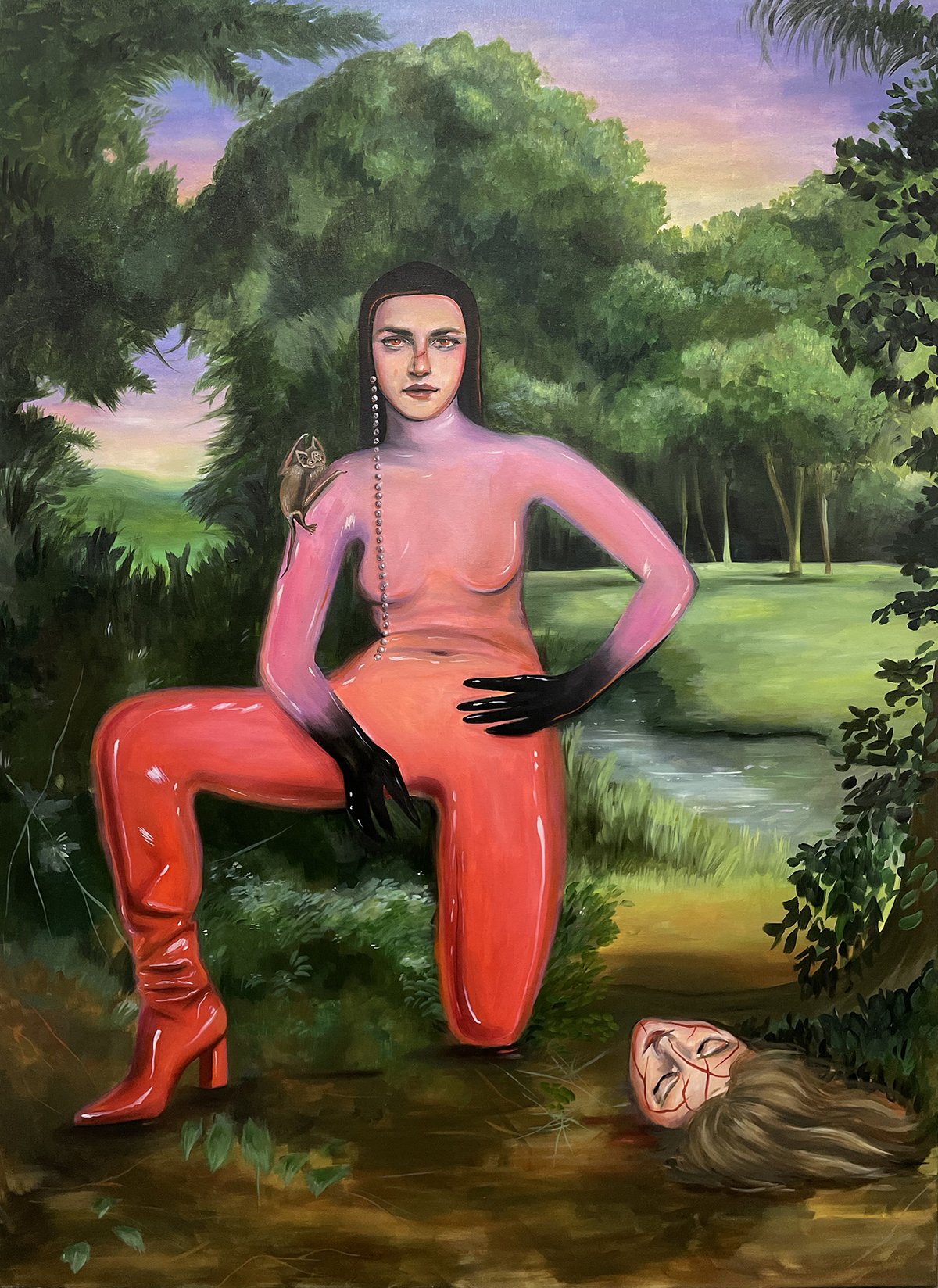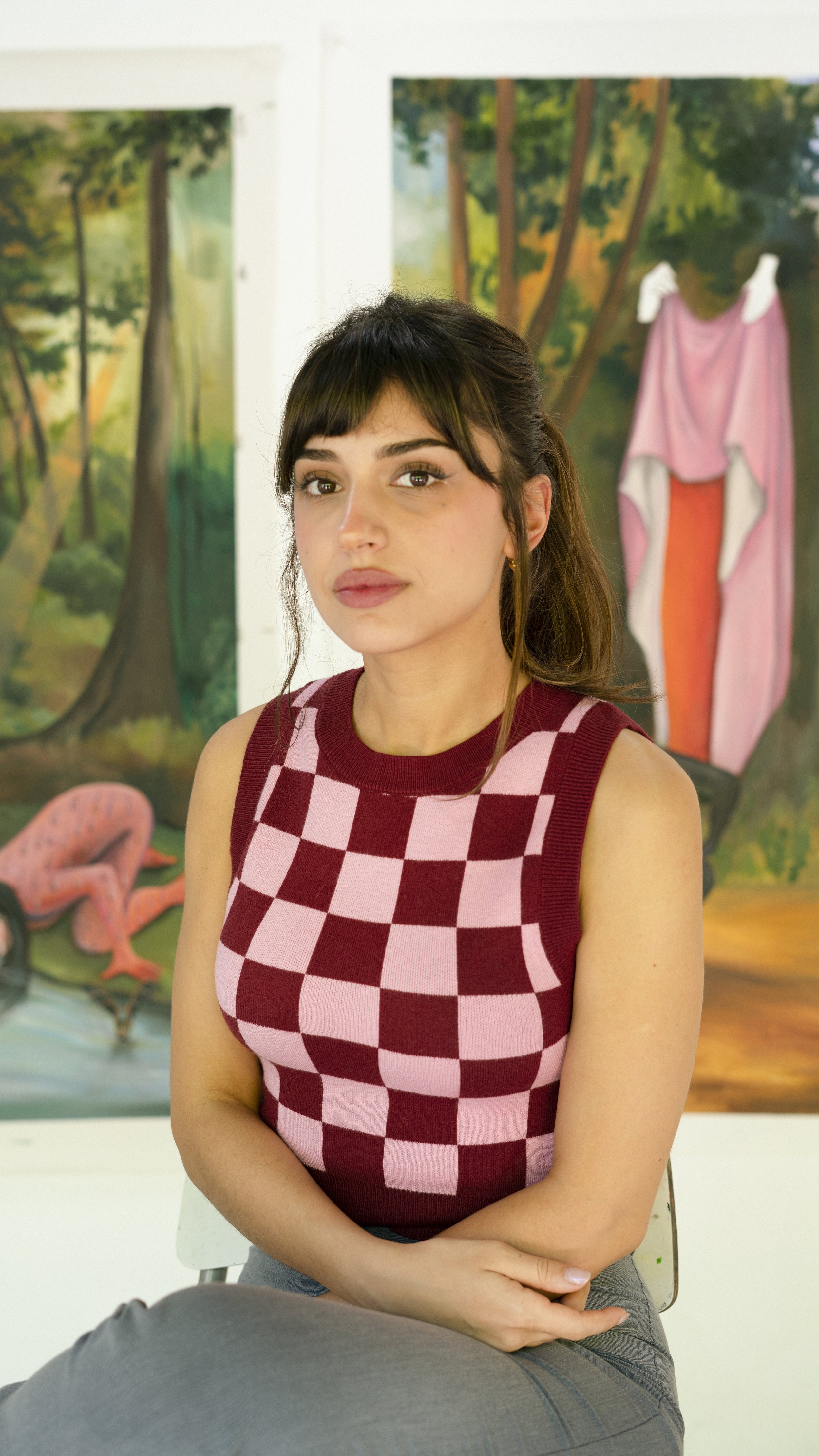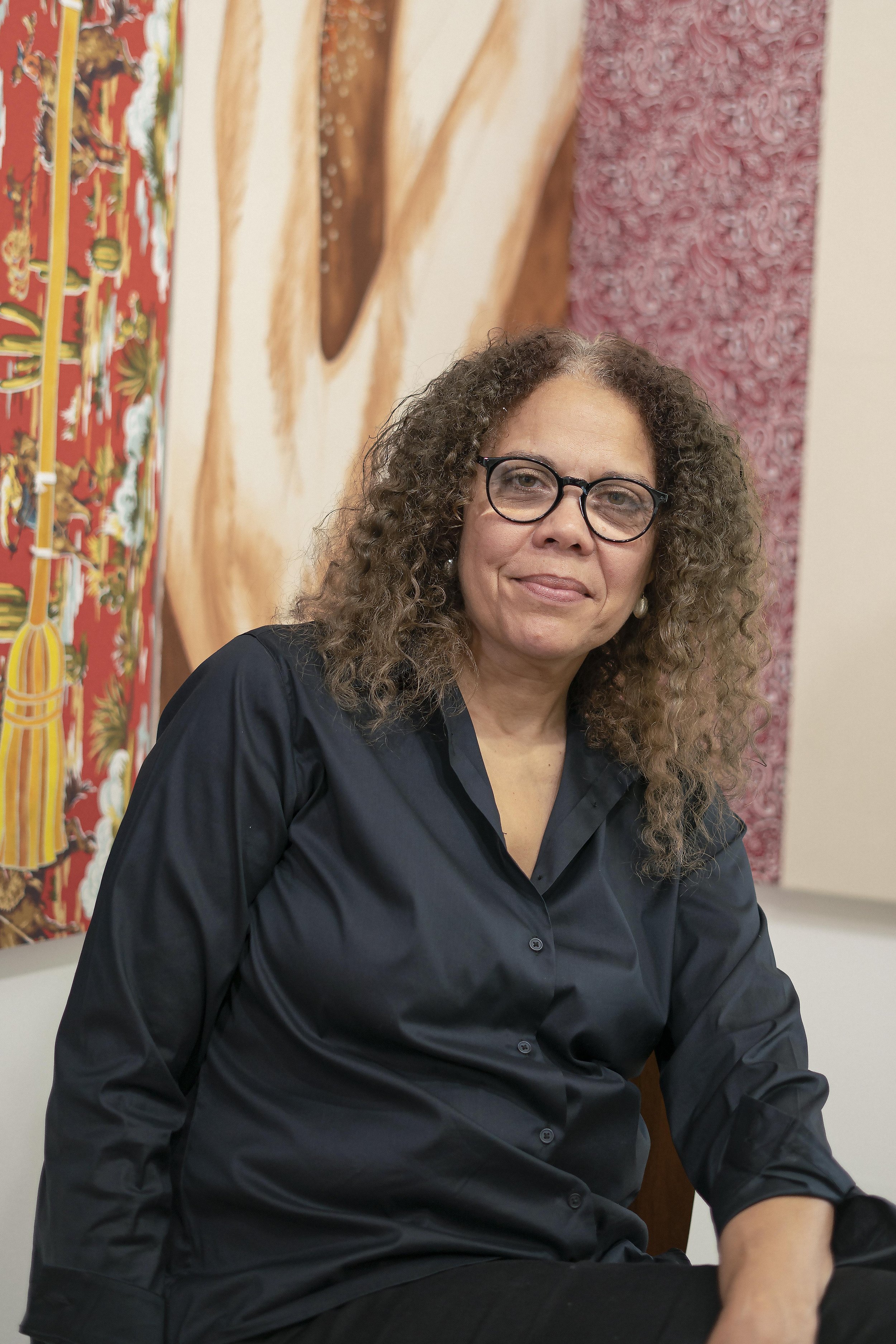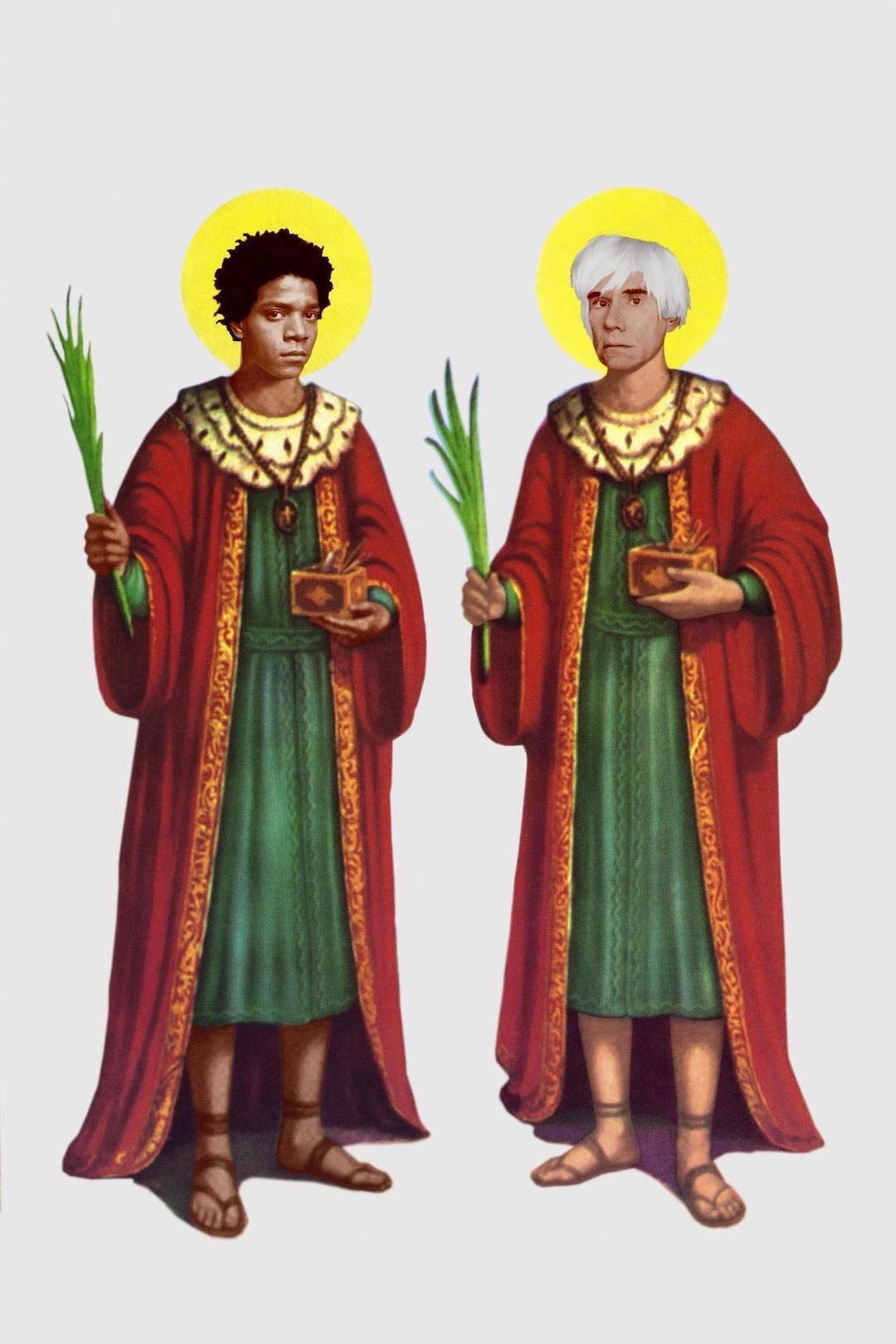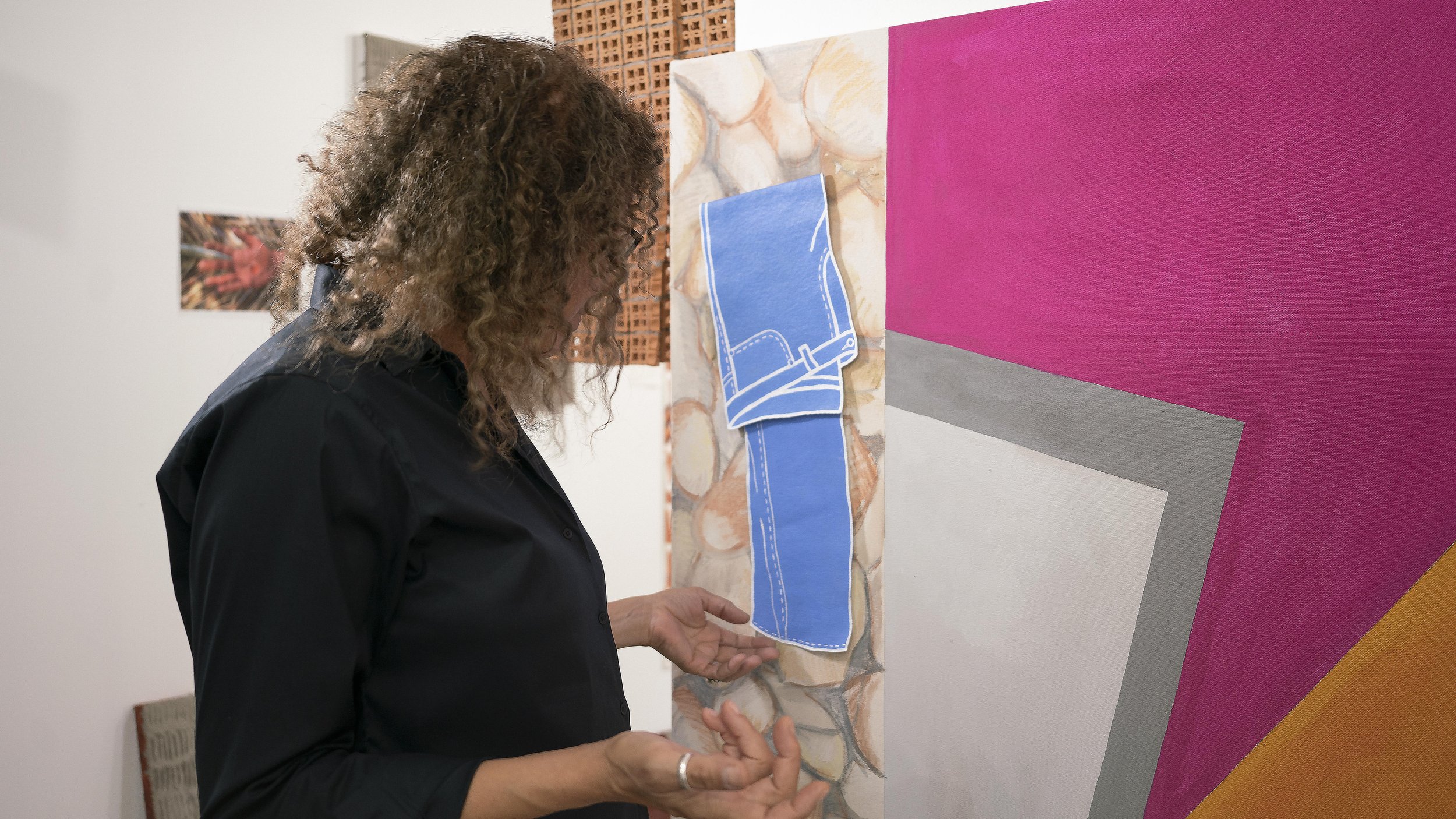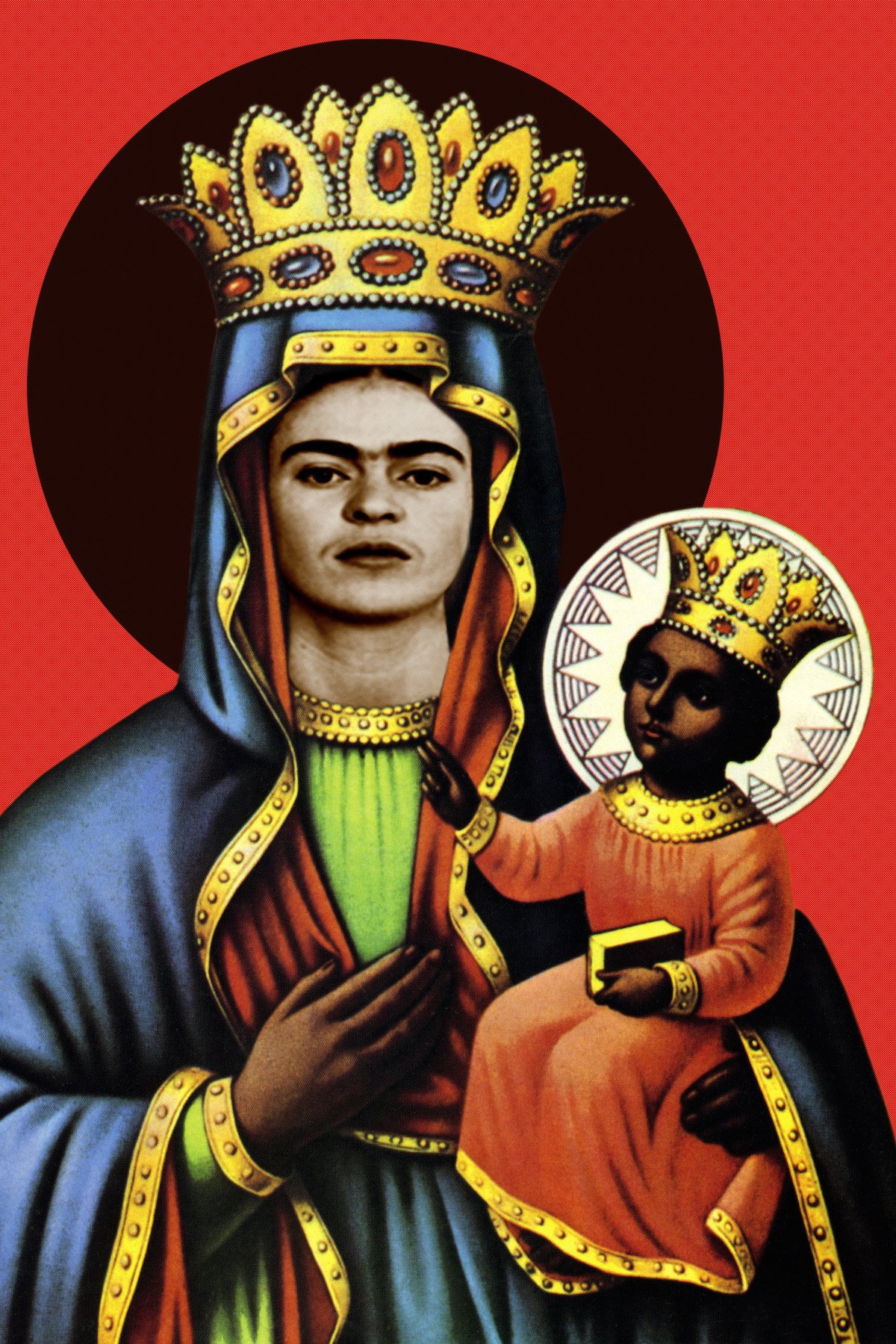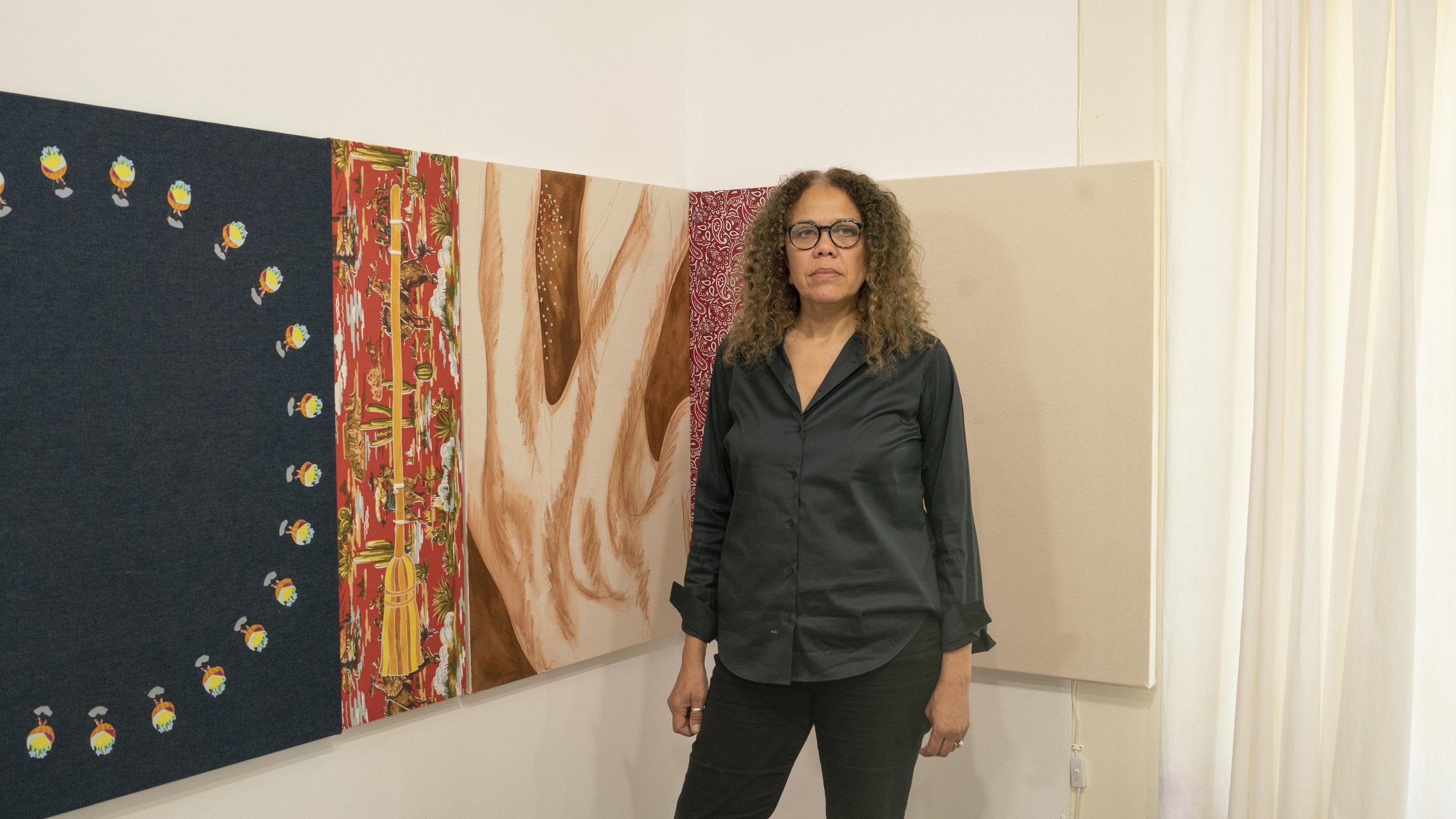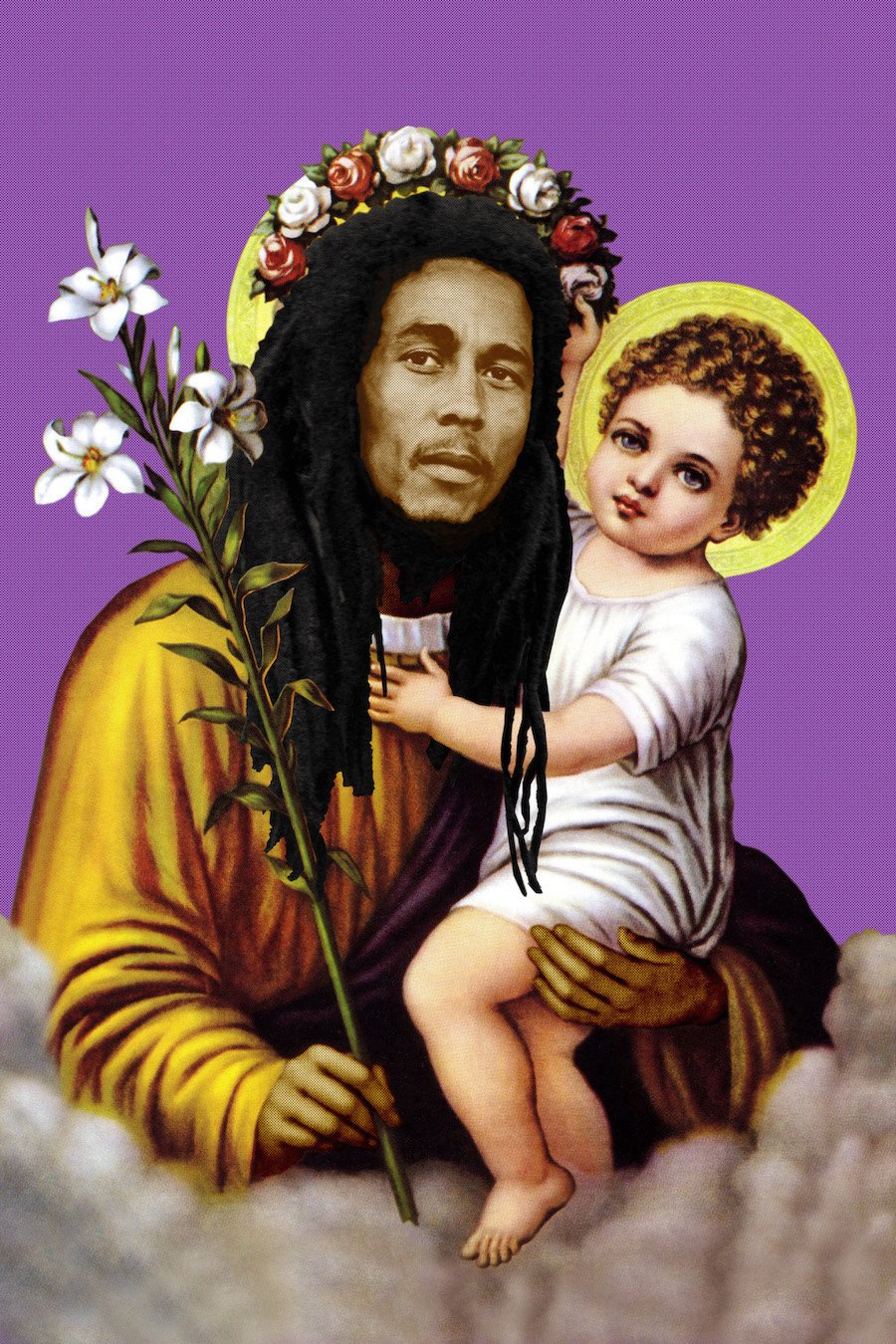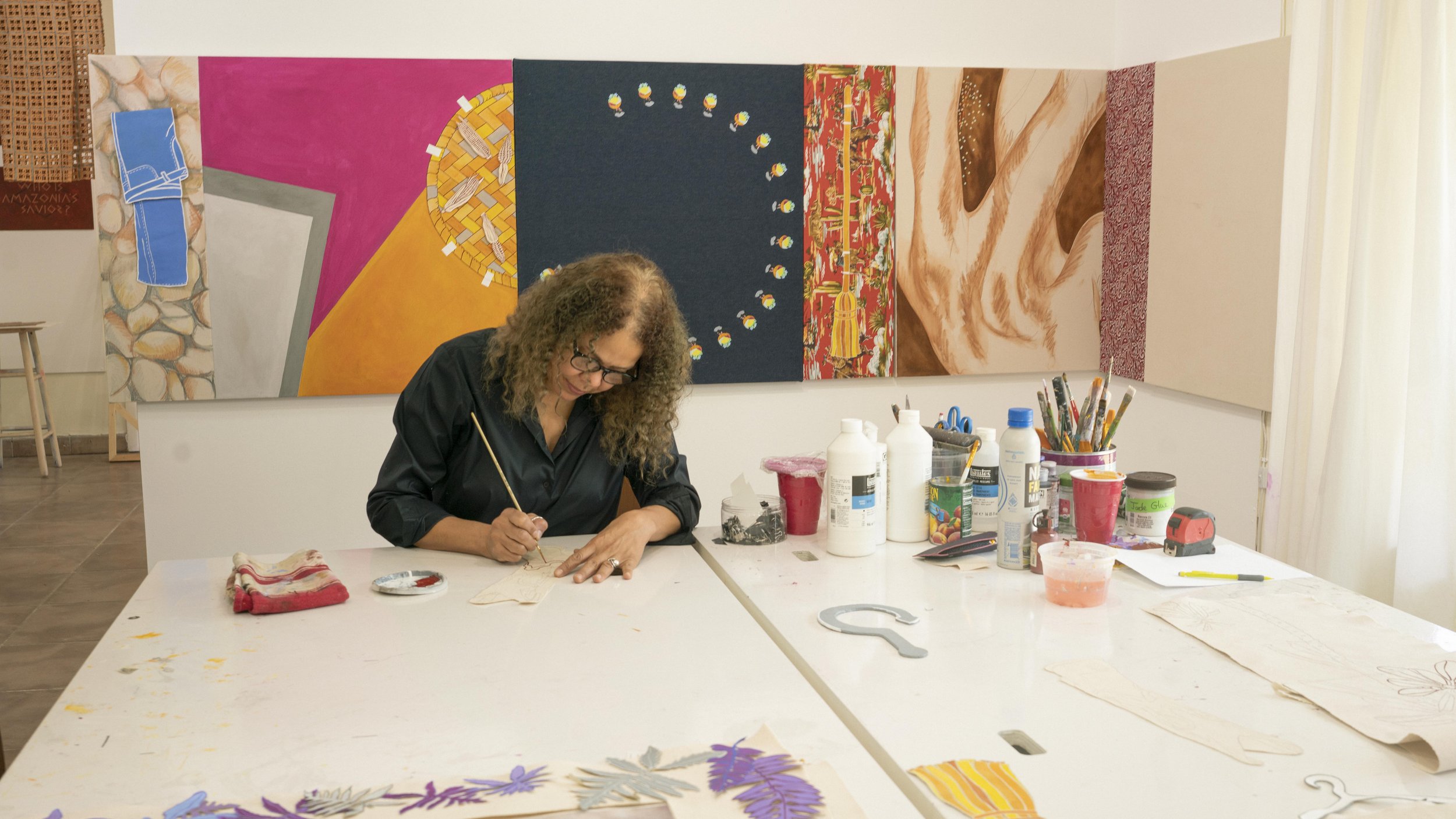Partnering Locally to Reach Globally
Andrey Gûaianã Zignnatto, Ornella Pocetti and Vladimir Cybil Charlier
Joining us in August 2022, Andrey, Ornella, and Cybil are part of Fountainhead Residency's Partnering Locally to Reach Globally residency, welcoming artists from Brazil, Argentina and Haiti. This residency is generously sponsored in part by Adriana and Ricardo Malfitano with support from The 55 Project.
Andrey Gûaianã Zignnatto
Andrey Gûaianã Zignnatto’s work reflects on his ancestral heritage and the realities of living in a city that’s all but destroyed indigenous ways of life. Based in Sao Paulo and a descendant of two different indigenous communities in Brazil, he considers how he can keep those traditions alive by resurrecting both his childhood memories and the ongoing reflections he gleans from spending several days a week working amongst his indigenous community. His personal crisis - straddling a desire to return to his indigenous roots while being forced to adapt to a modern society - is ever-present in his multimedia works, and he believes that resolving this crisis within the work he makes can serve as a blueprint for healing the divides between the indigenous and the occidental. Both his materials and processes bring his personal experiences into the work - as a child, Andrey supported his family by working with his grandfather as a bricklayer, so he will often use brick, cement and other construction materials in his work, for example - and he’ll work according to the process a bricklayer might use in building a structure, mixed with diverse elements of indigenous culture of his ancestral memories.
Noting that his process is intuitive, Andrey fosters a connection with his work by making it easy it simple to understand. He approaches it as artistic rituals rather than a performance, a painting, a drawn, or any other support, so that as many people as possible can understand and access the story it’s trying to tell. Andrey’s work has been exhibited in the Museu Afro-Brasil in Sao Paulo, National Arts Foundation in Sao Paolo, and in Sharjah Art Museum in Arab Emirates; he has been awarded the ‘Arte e Patrimômio’ Artistic and Cultural Heritage grant from the Brazilian Institute and numerous commission prizes from the Sao Paulo Culture Department. He is currently based in Sao Paulo.
Ornella Pocetti
In partnership with Fundacíon El Mirador
Ornella Pocetti’s work depicts women as mythological creatures in woodland settings, lending mystery and whimsy to their stories. In her paintings, she references the Raphaelite period of art history to create a style of painting that’s both grounded in reality and the wonder of nature. As an Argentinian artist whose culture places an enormous emphasis on psychology and psychoanalysis to truly understand oneself, Ornella thinks about how feminist theory has been affected or misconstrued by psychoanalysts like Freud or Lacan; working with female figures allows Ornella to reflect on how women have depicted as hysterical or unreliable, and even ‘monstrous.’ The women in her painting often appear as grotesque yet equally lovely, signaling Ornella’s interpretation of the feminine both in psychoanalysis and the history of image making. Like her depiction of women explores contradictions, their placement within nature has a similar function: Largely detached from nature as a city-dwelling porteña, Ornella uses nature as a fictional space to make her paintings more enigmatic and atmospheric.
Working with both paint and ceramic, Ornella’s process often involves mining horror films and movie soundtracks for inspiration, and studying various painting techniques online to achieve the style she’s trying to create. With minimal sketching, Ornella takes her time visualizing what she wants the work to look like before she begins painting, and tends to add and subtract gestures directly onto the canvas. She has won several distinctions for her work in Argentina, including the Salón Nacional prize in 2021 and the Premio Itaú ihn 2019. She is based in Buenos Aires.
Vladimir Cybil Charlier
In partnership with Haitian Cultural Arts Alliance
Over the years, Vladimir Cybil Charlier’s work has focused on developing a cohesive language to articulate a diasporic culture. Mirroring her own trajectory from New York City to the Caribbean, the search for that language has been the thread linking her different bodies of work, whether mixed-media paintings, prints, or installations.
One of her current series, Pantéon, when the Saints Go Marching! conflates archetypes of Afro-Caribbean deities with present-day Pan-African icons like Bob Marley, Jean-Michel Basquiat, and Frida Kahlo. These mixed-media drapos (hanging textiles) allow Cybil to ignite a conversation about how we form identity, and how the Afro-diaspora developed a visual lexicon as a mean of adapting to unfamiliar and unforgiving conditions. They also ask the viewer to reflect on how these diasporic practices contrast with our contemporary tendency toward appropriation. Her Old World/New World painting series pieces seemingly disparate cultural references and textures into modernist compositions. These works weave together personal histories with markers from both Caribbean and American cultures, generating a complex narrative for the viewer to decipher. For example, the blue jeans, boots, and straw hats that are recurrent images in the paintings can be read equally as iconic cultural markers that belong to American cowboys or as the sacred attributes of Zaka, the deity of agriculture in Haitian Vodou. The duality and ambiguity leave viewers to ponder how they personally construct meaning.
Cybil has been a resident at the Studio Museum in Harlem, and has been featured in the Venice Biennale and in exhibitions at El Museo del Barrio and the Bronx Museum. She is based in New York.

